Money 101 For Gig Workers And Musicians
Money
It’s one of those elusive things that you can never seem to get enough of and most people spend their lives chasing. Money Talks. It’s sexy, right? Well, not all the time. Not when you have to say no to the things you want and prioritize your needs. Yeah, budgeting.
The cornerstone of fiscal responsibility. It’s a necessary skill to have and by making smart decisions with your money you can make the most of what you earn and make it last much longer.
Being a gig worker, whether a musician, Uber driver, freelancer, digital nomad, or whatever; you need to take these financial topics into consideration because there is no Human Resources department or Certified Public Accountant advocating for your best interest like there would be at some larger companies.
If you’re at the point where you are making a lot of money or think you might need to hire a CPA check out this article on Dave Ramsey’s blog, he has helped thousands with his financial advice.
That’s why it is important for you to educate yourself on topics of personal finance. I’ve included here some advice on financial literacy to keep the most of that hard earned cash.
To start off, the self-employment tax is roughly 15%, which includes Social Security and Medicare. That means whatever the gross amount you earn in a year, you need to take 15 percent off the top for Uncle Sam.
Some self-employed individuals pay their tax bill at the end of the year instead of paying it over the course of the year and then settling the difference with either a smaller bill or a refund the way most traditional employees do.
This point touches on a basic financial principal known as the time value of money which states that a dollar today is more valuable than a dollar in the future because you can invest that dollar and earn interest over the time horizon.
One of the ways you can invest in yourself is by taking some money and contributing to an Individual Retirement Account. Nerdwallet.com has a nice listing of institutions where you can open an IRA here.
There are specific retirement accounts aimed at self-employed individuals. There are also different ways to contribute like making pre-tax contributions that can grow in the account and are then taxed upon withdrawal or after tax (Roth) contributions which allow you to pay your taxes upfront and upon withdrawal your initial investment and any growth are tax free.
Roth IRAs can be a good option if you are in a low tax bracket now but might be in a higher one when you later. Also, by paying the taxes upfront you get to enjoy the benefit of all the interest earned tax free.
For example, let’s say you’re just starting out and you can only afford to save $100 but you make enough money to be able to do this consistently every month for your career of 20 years. (I know it seems like a long time commitment now but your future self would thank you for foregoing a night out drinking or one nice dinner a month.)
Now, if you just stashed it all under your mattress you would have $24,100 which would have less value due to inflation but had you invested in a no/low fee mutual fund that mirrors the stock market and got the historical average of 7% returns compounded monthly it would more than double to $52,806.
The point is that you just made $28,706 of interest and you don’t pay any taxes on these earnings.
Time is an important element here. Starting early and being consistent is what makes it work. In the same example over 5 years you would save $6,100 but only earn $1,243. You can find compound interest calculators on the internet to play with the numbers but it’s important that what you put in there is realistic for you.
There are also great forums for advice on budgeting and ways to track and measure your income and spending habits to make smarter decisions using apps or even insights offered through your bank account using what you actually put in and take out of your account by category.
If you don’t track where your money is coming from and going to then you can’t measure it and if you can’t measure it then you can’t improve it.
So tracking your money is essential and when setting up your budget use conservative numbers that way if you come in under budget you can use that extra cash as a buffer for when expenses are higher.
There are also some general rules of thumb for budgeting your expenses. Let’s start with the big picture.
One place to start is with the 50/30/20 rule, popularized by Senator Elizabeth Warren and discussed in many financial articles like the one at Investopedia.com, which says that 50% of your income goes towards “needs” such as rent, groceries, and utilities, 30% goes towards “wants” like vacations, shopping, and going out, and the final 20% should be put towards savings for the future, think car, house or retirement.
Now everyone’s situation is slightly different so the rules of thumb have to be adjusted but make sure you are staying close to these percentages and question how you rationalize spending in discretionary categories.
If you dig a little deeper another rule of thumb says that you should not spend more than 30% of your income on rent.
That being said, there are cases where that category may be higher like if you live in a high cost of living area like California. Of course there is gray area here and you have to be the one to draw the line and determine how your income falls into each of the categories.
In Conclusion
Whatever your situation there are tools and communities to support you. You just have to determine what exactly you are looking for and then go out and find it.
Make sure when you are determining your budget or using calculators that you found on the internet that you understand the assumptions used and whether they apply to you.
Most financial questions can be answered on forums like Reddit and only in more complicated cases or when you are dealing with large sums of money does it require paying for financial advice. Remember, as you navigate the waters of personal finance, investing in yourself always pays off.









